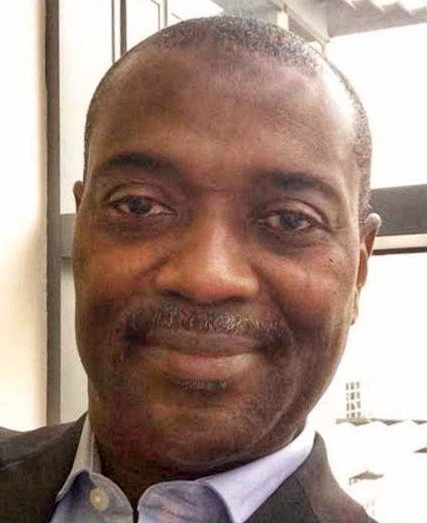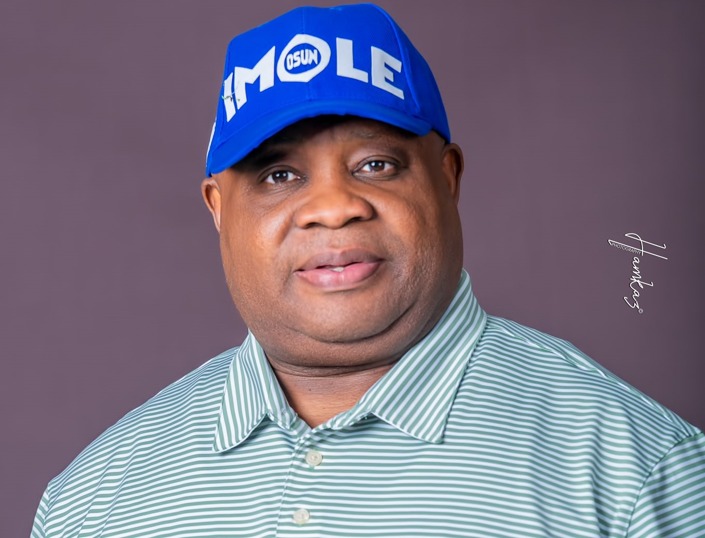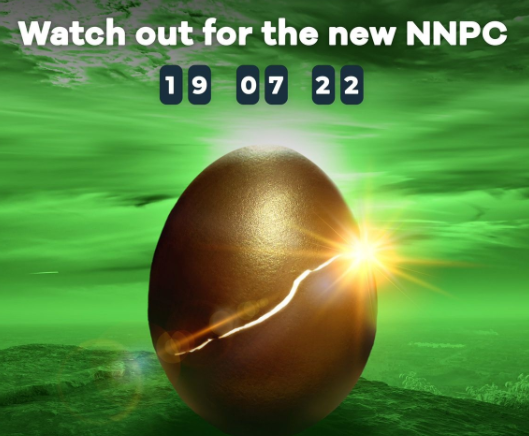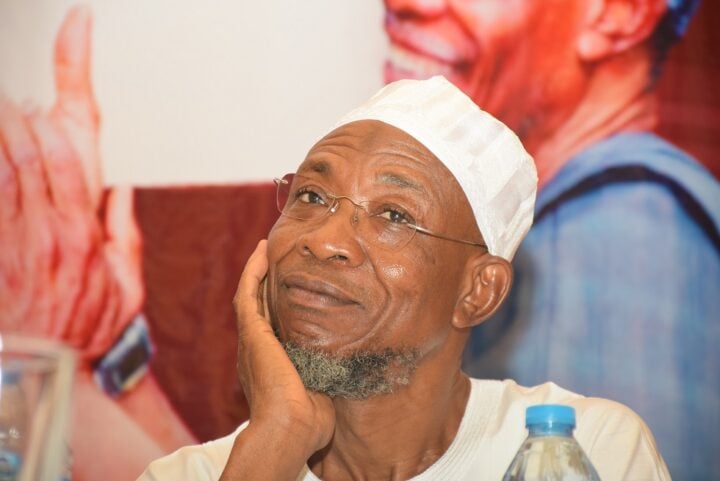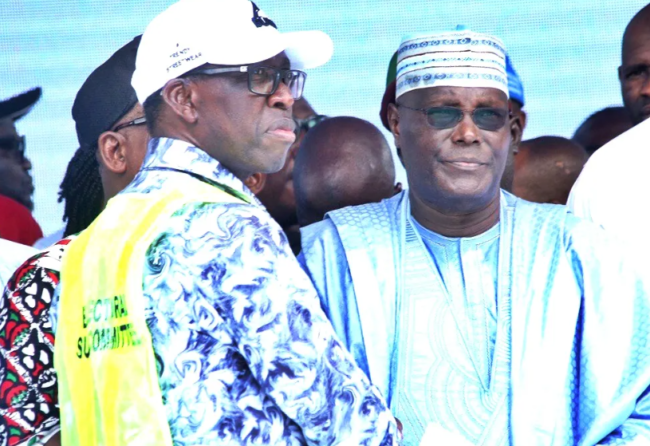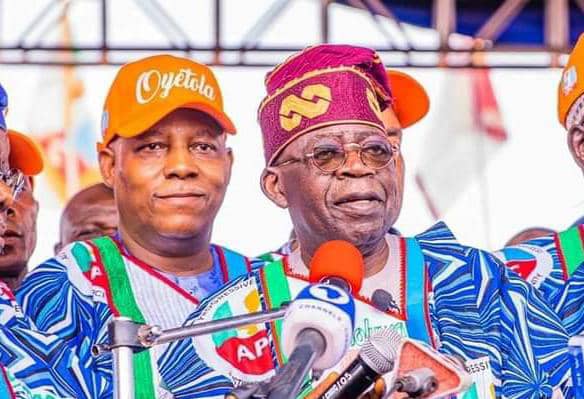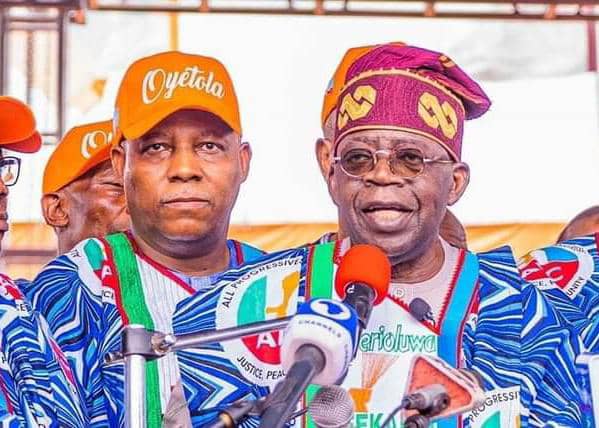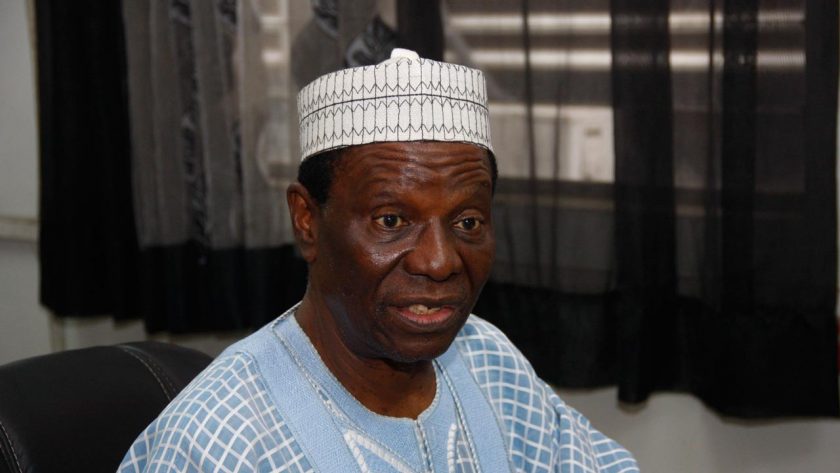The Yoruba people, like the Igbo people, are very particular about names. Names have strong, profound and far-reaching meanings and consequences in both cultures, to my knowledge. When the Yoruba people want to decode you, they sometimes look deeply into your name. They then try to ensure the warnings your name portends do not consume them, or they quickly associate your name, where appropriate, with the glory, success or dominance it foretells. Name is everything. I have not heard a Yoruba family name their child “Oloriburuku” because of a head-shaped anomaly – positional plagiocephaly or fetal craniosynostosis. I have heard jokes about the shape of the head of a certain musician, “Abami Eda”. Bless him.
Apart from Lagos state, which has enjoyed in succession the dominance of political parties such as UPN, SDP, AD, AC and APC, all the other states in the south-west have had some share of competition between the two main political gladiators in those states. Even Lagos state had its share when NRC, the political party with a much less political following, produced the late Papa Michael Otedola as governor following an internal dispute within the dominant SDP. True to his name “Otedola”, he took advantage of the internal wrangling in the SDP between Femi Agablajobi and Dapo Sarumi. The political solid engine room of Agablajobi and Sarumi was nullified through their disqualification by their political party. As a result, the door was open to the relatively less popular Yomi Edu drafted to stand for SDP. Sarumi and Agbalajobi sabotaged their political party with underground campaigns for NRC and Lagosians sought peace and maturity in the elderly Otedola, who ran away with the victory. As it was in Lagos, so it is in the present Osun state. “Adeleke” is another appropriate euphuism reflecting how strangers inherit their properties when brothers fight to the death. As it was with Otedola, so it is with Adeleke. Yoruba names are thoughtfully reflective of reality.
In Oyo state, a careful examination of the victories of Rashidi Ladoja, Christopher Alao-Akala, Abiola Ajimobi and present-day Seyi Makinde will reveal specific electoral lessons. It evidences how political party cohesion and building bridges have helped or hindered the success of each of these governors and their keen competitors at their election. While it is easy to dismiss the likelihood of a loss for Seyi Makinde in the upcoming election in 2023 due to his seeming acceptance and relative popularity, only a solid internal cohesion can ensure his seat retention. It was his strong coalition that made 2019 possible in the first place. To take things for granted is to suffer Adegboyega Oyetola’s fate of July 2022. As it is in Osun state, it may be in Oyo state. Nobody should be surprised. There is time to plan, learn and make amends. Yoruba politics is not your mate, to use the social media popular slang.
Ondo and Ekiti states have had their fair share of APC and PDP governance. Even Ogun state is not exempted, as both political parties have governed in that state too. Therefore, anyone expressing an alarm about the Osun state election outcome has probably momentarily forgotten this history, or the person is ignorant of this fact.
Advertisement
Osun and Oyo states especially have always been 50-50 states since 1999. The PDP and APC always win marginally. However, neither party has won overwhelmingly in the two states. At the risk of sounding immodest, this exemplifies the political dexterity and maturity of the people of the south-west. Dating back to between 1979-1983, the south-west, particularly the old Oyo state, was split. Bola Ige, with his eloquence and political sagacity, could not win a second term in 1983. Like somebody else, he was almost crying on national television, which led to massive protests, including the destruction of lives and properties in many parts of the state following his radio/television broadcast. However, his cry did not change anything as he still lost and went back home.
This political competition in the south-west and the right through the middle political divide dates to the Awolowo-Akintola fiasco. While I was too young to appreciate that period’s events fully, I had read enough history about it to understand the circumstances. Consequent to this historical period, the south-west remains where you become complacent during election times at your risk. Every election APC has won, even in Lagos state, has been a big battle. They have never left it to chance. They have had to fight for every vote. Lagos state is notably more complex and challenging because of the share number of citizens from the south-east and, to some extent, south-south, both of whom traditionally vote PDP. If you take this proportion of citizens out of the mix, perhaps, Lagos state would be the only place where APC might have more leisurely rides to victory.
There is no other such state in the south-west. If you can divide the Yoruba votes significantly in Lagos state and retain a solid south-east and south-south block vote for PDP in Lagos state, then the myth of a Bola Tinubu stronghold on Lagos would fly away. I believe his ability to hold the majority together through reconciliatory politics has worked for him in his control of the state. It is always a fight to finish in all the other south-west states. These politicians would rather have the opposition in power than accept a loss at the primaries. I am not naïve to argue that all Yoruba people in Lagos state are pro-APC. I only argue that most of them in that state have remained faithful to APC, unlike all other south-west states. Only a minority have been loyal to PDP. I know some Yoruba people who live in Lagos state and support APC in Lagos state but support PDP in their state of origin at particular elections.
Advertisement
Back to our Osun state election, any party that wants to win must work hard in both Osun and Oyo states. These are the two states that are almost equally divided. The political party that wants victory cannot afford to be divided. Indeed, an excellent strategy to win an election in each of these states is to find a way to create division among the leadership and membership of the opposition political party, potentially through planted moles leading to an election. If you know this, you know peace.
Specifically, two factors contributed most significantly to the Osun state election over the weekend. I concede there are other tiny issues; you can’t list them all. First was the internal division in the APC occasioned by Rauf Aregbesola’s faction. This is most instructive. Once the Adegboyega Oyetola group found it impossible to reconcile with the Rauf Aregbesola group, I knew the state was up for grabs. You can only hope for the best if you are their supporter. The second factor that contributed to Adeleke’s victory was that Iyiola Omisore, who had previously helped secure the by-election for APC four years ago in Osun state, was losing grip in his native Ile-Ife. The election results show that APC’s margin of victory in the Ife-south and Ife-east local governments was very tiny. Previously Iyiola Omisore held sway in both local governments by a long pole, but not anymore.
Conversely, I am not taking away the popularity of the Adeleke political family. They have a history in the state. Where Adeleke won, he won decisively, especially in his Ede hometown and environs.
The problem with Nigerian politics and election matters is that politicians and their hardened supporters are incurable optimists. They are like Liverpool Football Club supporters who never walk alone. Even when they are four goals down at 30 minutes to the end of a football match, they continue to roar like Lions from the spectators’ stands. To their credit, they have turned seemingly impossible games around. Examples include against Barcelona FC when they came back from 3-0 down to win 4-3; against Olympiacos with a 3-1 comeback needing two clear goals to avoid an away goal rule loss; and against AC Milan coming back from a 3-0 down to level up at 3-3 and go on to win on penalties. But I digress.
Advertisement
I have gone to this length to show that the success of PDP in Osun state should be analysed with caution. My assessment is that the outcome of the Osun state elections is all political rather than incompetence or poor governance. If you listen to the state’s citizens, they have not complained seriously about the incumbent governor’s poor governance. This point is crucial when you juxtapose the evidence against the performance of the two governors preceding Adegboyega Oyetola. Citizens admit they have enjoyed regular salary payments for the last four years. They even surprisingly received pensions which most other states have struggled with. Salary or pension payments are, however, no indicators of good governance. Actually, it is nothing. Yet, in a malfunctioning Nigeria, the citizens have come to appreciate salary payments and show gratitude. Governors have equally been quick to identify it as a mark of success. This is a sad commentary on how low governance and the yardstick of success have declined.
Finally, there are lessons to learn from the quality of political games and powerplay in the south-west. What has happened in Osun state is good for democracy and its advancement. It ensures the ruling party in a state does not stick to the lowest ebb but is conscious of the reality of constantly losing power. This can only breed good governance, transparency in the election and the development of our democratic culture. The remaining regions/states of the country, particularly the states dominated by one party, need to realise that unless they continue to keep the people happy, the people may show them the door soon. There is, therefore, nothing to be jubilant about by the winning APC in Ekiti state recently or the PDP in the just concluded Osun state. Let the amiable dancing Governor-elect enjoy the dance of the moment, but like all others around the country, they should also be watching their back and improving their game.
Gbadamosi can be reached through [email protected]
Advertisement
Views expressed by contributors are strictly personal and not of TheCable.
Add a comment
